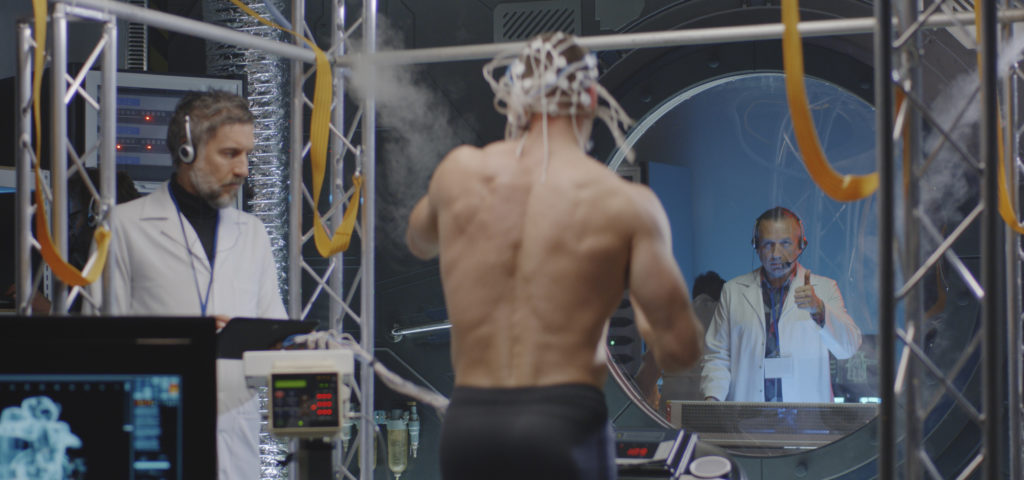Quick Hits
Daily brief research updates from the cognitive sciences

Those of you who have followed my writing will know that I have reported regularly on the amazing benefits of exercise and walking on the brain, body, and cognition.
However, though we know that walking can stimulate various cognitive functions, we also know that doing multiple complex or demanding tasks together reduces performance. So, walking helps stimulate creativity and improves cognitive performance – normally after walking, while walking, performance on cognitive tasks decreases. Which is often why when you really need to think something through you automatically stop or pause.
This is all in line with what we know of cognitive and brain functioning. However, some researchers from the University of Rochester Medical Centre have just published a paper with some surprising results.
What did they find?
26 healthy 18-30-year-olds did a series of tasks. First they did a response task to images of pictures while sitting. This was considered their “baseline” performance level. They then conducted the same task while walking on a treadmill. Almost all previous research showed that performance decreases. This was the case in 12 participants, however, in 14 participants performance increased!
All participants had EEG recordings of their brain activity – and they found that in these 14 prefrontal activity (associated with cognitive performance) in the brain increased during walking tasks leading to higher performance. However, before you get too excited there was no way to predict this from any other data or even observing them.
This suggests that in some people in this study more than 50% of people improve performance on cognitive tasks while walking. Which if we learn to predict this could lead to more effective strategies for cognitive performance for these people.
It could also be that these people also intuitively do tasks that boost their performance. But beware – the research on multitasking is still clear: the more tasks you do concurrently, the lower the performance, the more mistakes you make, and the slower you are. It also compares a highly automated task, walking with a cognitive task, not two cognitive tasks. So, no free card on multi-tasking here.
Single tasking, is still the best advice I can give to boost performance●

Andy Habermacher
Andy is author of leading brains Review, Neuroleadership, and multiple other books. He has been intensively involved in writing and research into neuroleadership and is considered one of Europe’s leading experts. He is also a well-known public speaker speaking on the brain and human behaviour.
Andy is also a masters athlete (middle distance running) and competes regularly at international competitions (and holds a few national records in his age category).
Reference
Eleni Patelaki, John J Foxe, Kevin A Mazurek, Edward G Freedman.
Young adults who improve performance during dual-task walking show more flexible reallocation of cognitive resources: a mobile brain-body imaging (MoBI) study.
Cerebral Cortex, 2022
DOI: 10.1093/cercor/bhac227
More Quick Hits
Neurons for alcohol withdrawal
I’ve reported on alcohol a number of times. Most recently reporting that even low quantities of alcohol appear to age the brain (however, higher quantities are much worse). Researchers had previously found that a signalling molecule pathway in the brain seemed to...
How the Arts Help Self Control
Quick HitsDaily brief research updates from the cognitive sciencesome people criticise arts education, thinking that it is more play and has no clear life function. Normally a certain type of conservative. This is short minded; we know that arts...
How the gut communicates with your brain
Quick HitsDaily brief research updates from the cognitive sciences ust after publishing the article on Serotonin and stating that the gut and brain’s serotonin systems can be considered separate entities, out comes a piece of research to show that...
Are you an “elite sleeper”? It’s in your genes.
Quick HitsDaily brief research updates from the cognitive sciences ’ve reported many times on different aspects of sleep and how important this is for health in general and for brain health in particular. You can go here for a short review of all...
Controlling social mingling by laser
Quick HitsDaily brief research updates from the cognitive sciences here has been plenty of research into brain areas that contribute to our social brain but these researchers around Stephen Mague at Duke University went a step, or two, further and...
Exercise is Infectious
Quick HitsDaily brief research updates from the cognitive sciences his is an older study (2017) I came across and found fascinating. As many of you regular readers will know I have reported many times on the benefits of exercise. But this study was...






